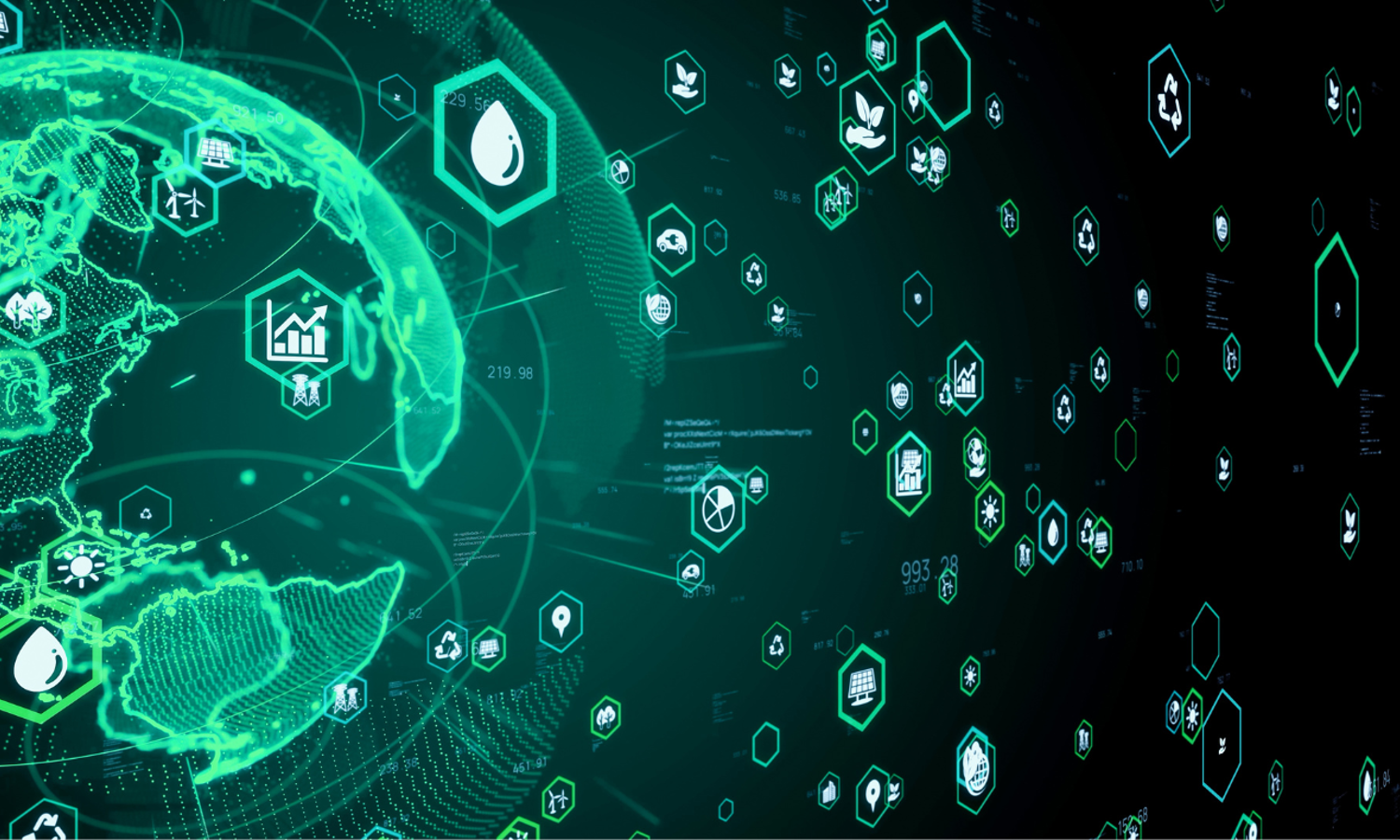What does sustainability mean for work?
The evolution of the sustainability concept has seen it grow beyond environmental perspectives to embrace social, economic, and ecological dimensions. In the context of a workplace, this broadens to include ethical labour practices, which safeguard employees' rights and foster a safe work environment. For instance, such practices encapsulate fair wages, prohibitive measures against child and forced labour, and ensuring a secure working milieu.
Environmental sustainability in the workplace
Resource Efficiency: The essence of sustainability in a working environment significantly leans on resource efficiency. Optimising the utilisation of fundamental resources such as water, electricity, and raw materials offers threefold benefits: cost reduction, elevated productivity, and diminished environmental repercussions. The transformation of contemporary offices bears testimony to this, with a swing towards renewable energy, the establishment of recycling endeavours, and the induction of smart technological aids. These aids, encompassing sensors and automated systems for lighting, heating, and cooling, ensure energy conservation by being active as per necessity. Digital tools further reinforce this by assisting employees in monitoring and curtailing resource consumption.
Smart Work: Beyond the mere physical resources, the emphasis is also on leveraging technology and design to foster flexibility and productivity. This ethos introduces mechanisms such as remote working, activity-based working, and the blossoming co-working spaces. Such strategies not only heighten productivity and innovation but also contribute to employee wellbeing, allowing them autonomy in their work arrangements.
Green office spaces and biophilia: These twin concepts merge to craft a work environment that's both sustainable and closely connected to nature. While green office initiatives centre around the entire building's ecological footprint, biophilia zeroes in on designing spaces that echo natural vibes, thus promoting a sense of wellbeing.
Travel and Transport: Sustainability also brushes upon the modes of travel and transport. Companies now champion the cause of public transport, carpooling, and cycling as sustainable commuting options. Coupled with digital communication tools, they considerably curtail the need for carbon-intensive business travels.
Social sustainability in the workplace
Diversity and Inclusion: At its heart, this is about sculpting a workspace where individuals, irrespective of their backgrounds, find a sense of belonging and value. This ethos demands transparent hiring practices, wage equity, and a fostering of an inclusive culture. Such measures don't just make ethical sense; they also usher in innovative thinking and better decision-making. However, mere diversity without true inclusion could inadvertently promote tokenism.
Employee Wellbeing: This is an often under-emphasised facet of sustainability. Provisions such as mental health support, flexible working hours, and continuous learning opportunities echo the commitment towards this goal. A satisfied and healthy workforce not only contributes to better productivity but also solidifies their allegiance to the company, engendering a positive feedback loop.
Stakeholder Engagement: A truly sustainable enterprise acknowledges the significance of all its stakeholders, transcending the boundaries of shareholders to encompass employees, consumers, suppliers, and the local community. Such comprehensive engagement offers invaluable insights, promoting decisions that resonate with sustainability.
Economic sustainability in the workplace
Ethical Business Practices: Sustainability and ethics are often intertwined. Practices that champion transparent financial dealings and the ethical sourcing of materials resonate with the principles of sustainability. Operating with integrity ensures a harmonious relationship with all stakeholders, ensuring the brand's reputation remains untarnished.
Localised Production and Supply Chain: Adopting a localised strategy for sourcing and production can immensely benefit both the environment and the local economy. It minimises the environmental footprints linked with long-distance transportation and strengthens local businesses. This not only aids in ecological conservation but also enhances the transparency of operations.
Long-term Planning: A pivotal shift in economic sustainability is the transition from short-term profit goals to a more holistic, long-term vision. This necessitates strategic decisions that, even if challenging in the short run, promise long-term benefits for both the enterprise and the broader environment.
Technological sustainability in the workplace
Automation and AI: The exponential growth of technology, especially automation and artificial intelligence, promises efficiency and resource conservation. However, the ethical dimensions can't be ignored. The potential job displacement due to automation demands a vision that emphasises retraining and skilling.
Digital Literacy: In a rapidly evolving technological landscape, ensuring the workforce is equipped with the requisite digital skills is paramount. This not only guarantees smooth operations but also fortifies the personal and organisational resilience against future challenges.
Cultural sustainability in the workplace
Organisational Values and Mission: A crystal-clear organisational mission infused with sustainability attracts like-minded talent, fostering a workforce that's in synergy with the enterprise's goals. This alignment often leads to elevated productivity and a shared sense of purpose.
Continuous Learning and Adaptability: In a dynamic global market, fostering a culture of continuous learning is indispensable. Such a culture encourages employees to evolve, adapt, and innovate, ensuring the company remains relevant and resilient.
Collaboration and Partnership: The essence of sustainability is often collaborative. Companies now acknowledge the merits of collaborating with diverse entities, be it other organisations, NGOs, or government agencies, to achieve a broader, sustainable vision.
In summary, sustainability in the present-day work environment is a complex tapestry woven from diverse threads. It's not solely about environmental conservation; it also encompasses crafting workspaces that are resilient, inclusive, and attuned to generating long-lasting positive impacts for all stakeholders.



